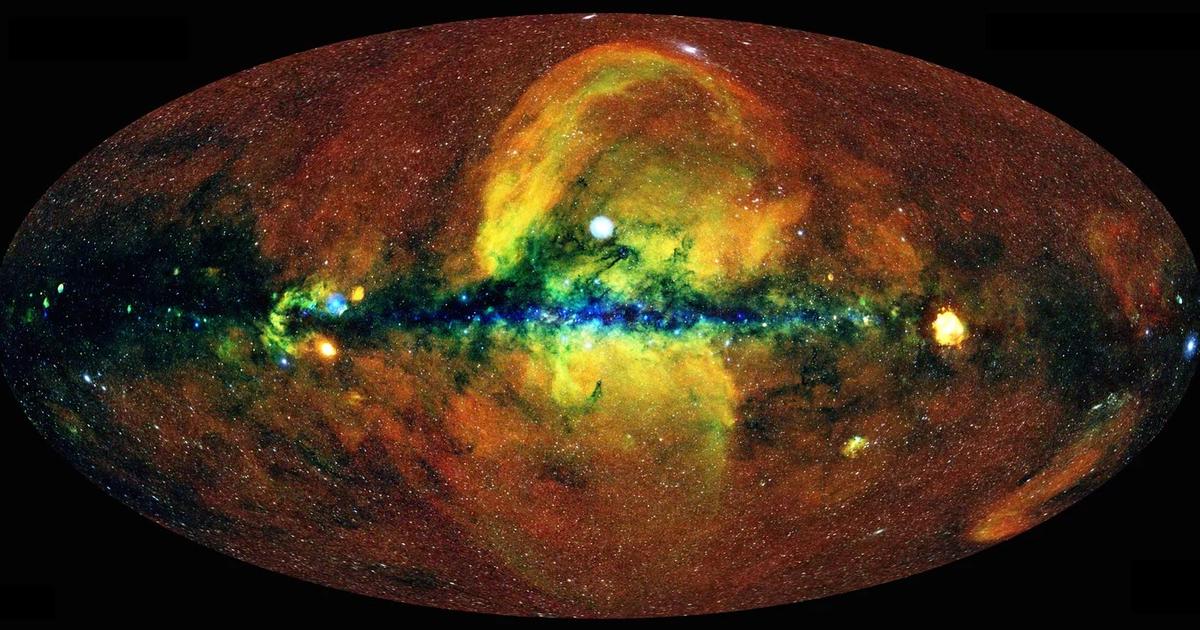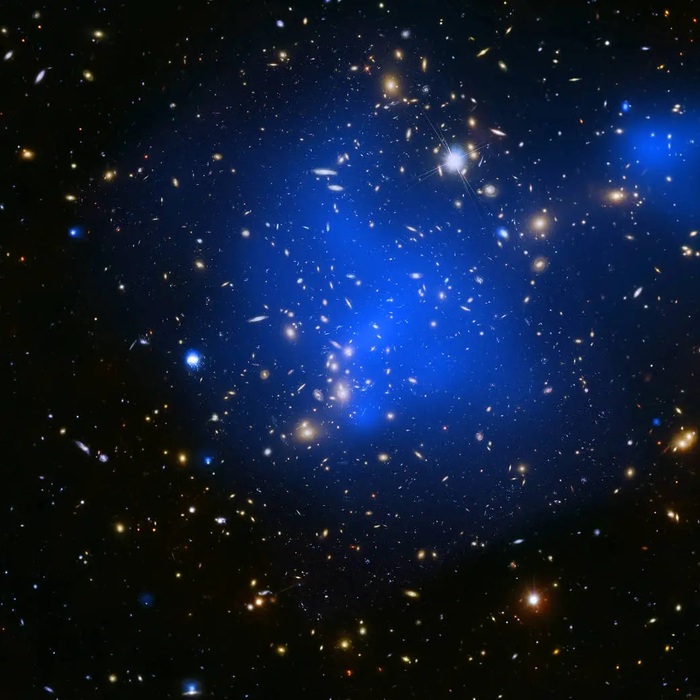I understand that the question refers to the speed of the galaxies with respect to the rest of the universe and not about, for example, the rotation of the galaxy around its own axis.
The first thing I wanted to clarify is that a single speed cannot be quantified for all galaxies.
It can be said that each galaxy moves in its own way.
And the same happens with the rest of the objects that make up the universe, everything moves in it.
The speed of galaxies depends on several factors: its age, where it is located, and what is around it.
The total speed depends on how it is dragged by the speed of expansion of space in the universe (Hubble flow), because we already know that since the Big Bang the cosmos expands, which makes the space between objects grow with time.
This is the factor that dominates in the most distant universe, in the most primitive.
This most distant universe is much more chaotic than the current one, and the galaxies in that universe are the ones that move the fastest, much faster than those in the current universe.
As I was saying, not all galaxies move at the same speed, but to give you an idea, those around our Milky Way move, more or less, in a range of between 100 and 2,000 kilometers per second;
those that are a little further away, at about 5,000 kilometers per second and the most distant can move at more than 10,000 kilometers per second.
For example, the galaxy in which a supermassive black hole has been detected for the first time, called Messier 87, moves at about 1,600 kilometers per second and ours, the Milky Way, travels at 600 kilometers per second.
They are very high numbers because we are talking about kilometers per second.
In the case of the Milky Way, its speed is more or less like traveling from Madrid to Cádiz in a snap.
To this speed of drag due to expansion of space in the universe, we must add the speeds that deviate from the distance that cosmic expansion prints, which is known as peculiar movement (
peculiar velocity
in English).
In this case we are talking about the local movement/velocity of the galaxies within their surroundings.
For example, it depends on whether the galaxy is in a group, which is a group of about fifty galaxies, or is in a cluster, which is a group of hundreds of galaxies together.
The Milky Way moves at that speed of 600 kilometers per second towards a great concentration of matter called the Great Attractor and that is between Virgo and Leo.
And this is so due to the gravity exerted on it by this Great Attractor.
More information:
Recorded for the first time a dust storm on Mars while 'swallowing' a NASA robot
If, in addition to being in the universe and influenced by its expansion and in addition to being in a large or small neighborhood, it has a neighbor, it also produces a kind of dance between them, approaching and moving away, which also influences their total speed.
That is what happens, for example, to the Milky Way with Andromeda (or more generally to galaxies in the process of interaction-fusion).
And that can also cause the speed to change.
Although these changes are usually relatively small, if we compare them with the rate of expansion of space in the universe and with the peculiar motion due to the environment.
Something that may surprise you is that while the speed of the Milky Way is about 600 kilometers per hour, that of Andromeda is the same, but negative.
And that is so because you also have to consider the direction of movement.
One very important thing is the reference system, which is what tells us if the velocity is positive or negative.
In everyday life it's easier to have a common fixed point of reference, and that's why we don't use negative velocities.
The sign of the speed tells us where it is moving (if it is moving towards or away from something), since we cannot go back in time or move in a negative space that does not exist.
But when we measure the speed of galaxies, the sign is important, because it is due to the reference frame we use.
For a long time it was difficult to measure the speed of objects in the universe due to the difficulty of finding common reference systems when everything is moving.
But in the 1960s an all-pervading fossil radiation from the Big Bang was discovered, the microwave background radiation that appeared very, very shortly after the Big Bang, has been expanding with the universe and we find it everywhere. the places.
No matter where we focus the telescope, there is background microwave radiation.
And this radiation that fills everything can be considered as the most fixed point that we can find, it also moves, but it is the most constant thing in the universe and all the speeds that I have mentioned in my answer are in reference to this radiation. cosmic background.
Sara Cazzoli
is a doctor in astrophysics, a researcher at the Astrophysics Institute of Andalusia (CSIC)
Question submitted by César Mesa
Coordination and writing:
Victoria Toro
we answer
is a weekly scientific consultation, sponsored by the
Dr. Antoni Esteve Foundation
and the
L'Oréal-Unesco 'For Women in Science' program
, which answers readers' questions about science and technology.
They are scientists and technologists, members of
AMIT (Association of Women Researchers and Technologists)
, who answer these questions.
Send your questions to
us@gmail.com
or on Twitter #weanswer.
You can follow
MATERIA
on
,
and
, or sign up here to receive
our weekly newsletter
.















